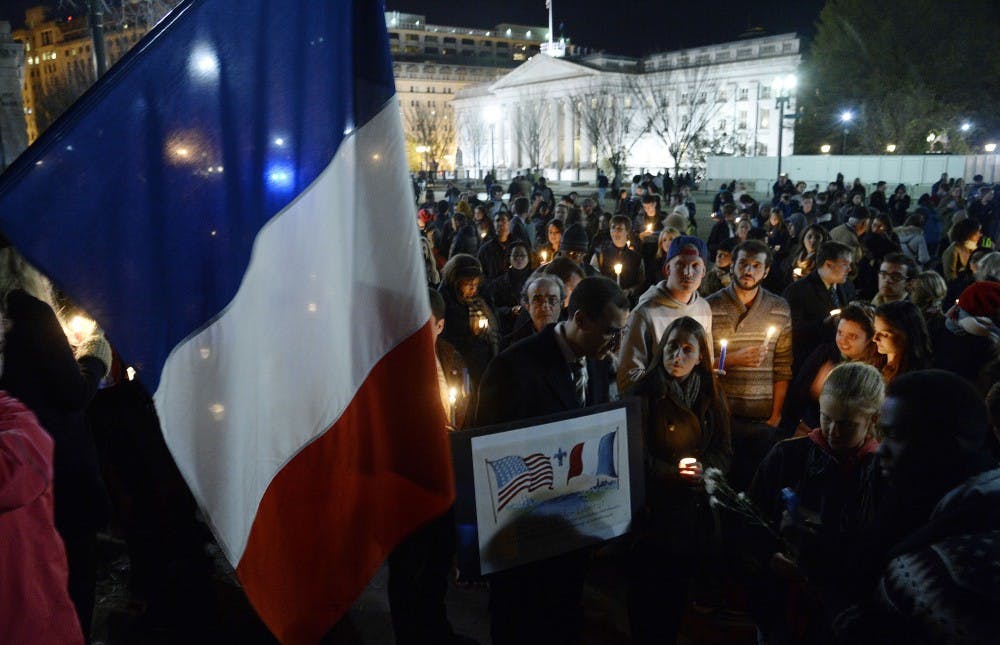With the recent tragedies flooding news channels and social media, there is an overwhelming amount of emotion circulating the Internet.
Unfortunately, amidst the reporting and the commentary, many have begun to rank these sadistic events over one another, invalidating each in the process. Scrolling through my news feeds, there is an abundance of posts (similar to the one below) that attempt to override one tragedy with another.
what happened today in Paris happens everyday in Syria, Iraq and other countries but do we hear the media talking about it? no :)
— zayn*b (@halalizayn) November 14, 2015
While his intention may have been to reinstate a balance in the perception of global tragedy, he, in many ways, did the opposite. Instead of reiterating the importance of both, he chose to downplay the tragedy in France using the tragedy in Syria.
Read More: ASU alumna recounts Parisian terror, aftermath
This may not have been intentional, but it is a prevalent structure presented in social media when tragedies such as these occur. When used in the proper context, comparisons can be a powerful tool in helping an audience empathize with a situation. However, it is important we remember that pain and loss is still pain and loss — no matter the country — and should be respected.
Those who were old enough to remember the Twin Towers collapsing often remember their exact location when they heard about it. They can explain the way their heart dropped into their stomach and the fear that crawled into their minds. It was an attack far too close to home and the fear it induced rippled throughout our nation for many years to follow.
The emptiness many Americans felt that morning is currently being felt by those in France, Kenya, Iraq or Lebanon — in all countries currently in a state of war. While there is debate surrounding whether or not these horrific events should be classified as legitimate terrorist attacks, there is no argument that they are acts of terror.
A powerful movement has materialized as a result of these tragedies. There is a developing understanding that pain and loss can exist in more places than one, that sadness can be found in multiple places at the same time.
I changed my profile picture on Facebook to a French flag to show my support in the minute way I know how. However, that does not mean I do not also show support for the dozens of other countries currently struggling.
The hashtag that has been circulating, #PrayForTheWorld, is bringing recognition to all those countries who have flown under social media’s radar for too long without invalidating the tragedy that has stricken Paris (or any other widely broadcasted calamity).
Below is a tweet that accurately depicts the movement as whole: “Pray for Paris by all means, but also pray for the world.”
Pray for Paris,by all means. But also pray for the world pic.twitter.com/S3lzcFZrMN
— Paulo Coelho (@paulocoelho) November 16, 2015
Related Links:
Why the War on Terror is undeserving of a monument
Reach the columnist at rblumen2@asu.edu or follow @500wordsofrayne on Twitter.
Editor’s note: The opinions presented in this column are the author’s and do not imply any endorsement from The State Press or its editors.
Want to join the conversation? Send an email to opiniondesk.statepress@gmail.com. Keep letters under 300 words and be sure to include your university affiliation. Anonymity will not be granted.
Like The State Press on Facebook and follow @statepress on Twitter.




